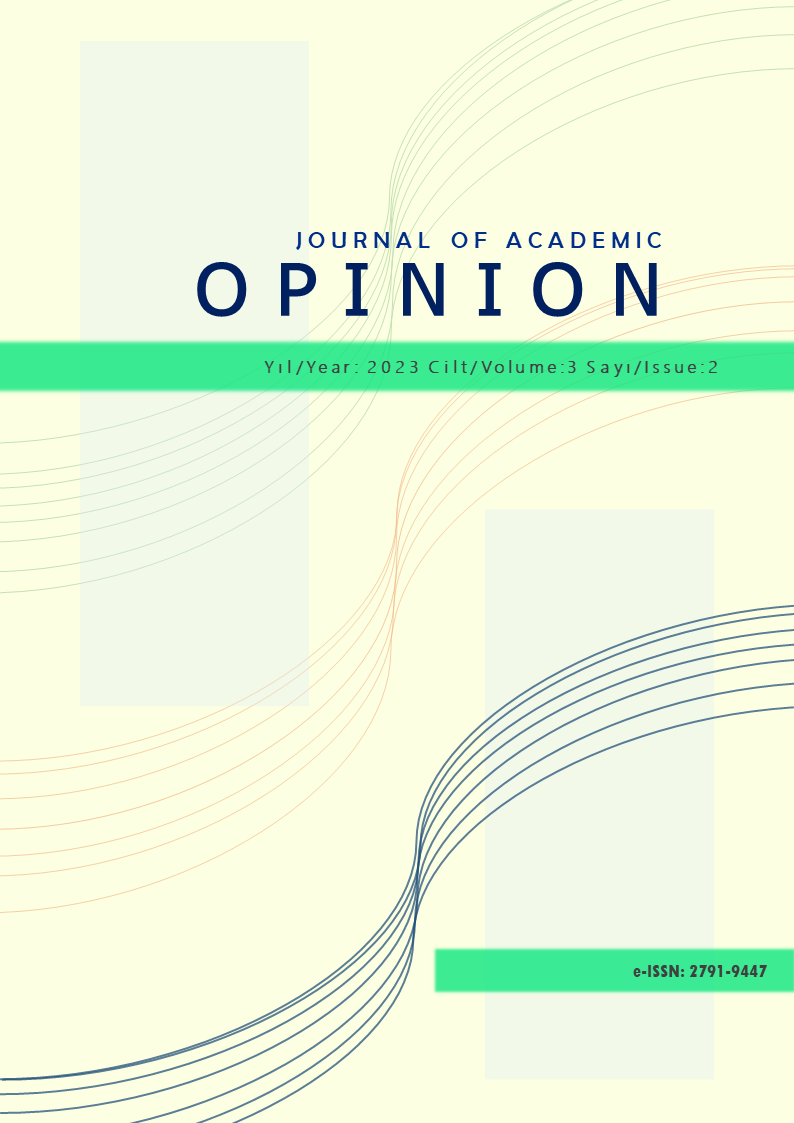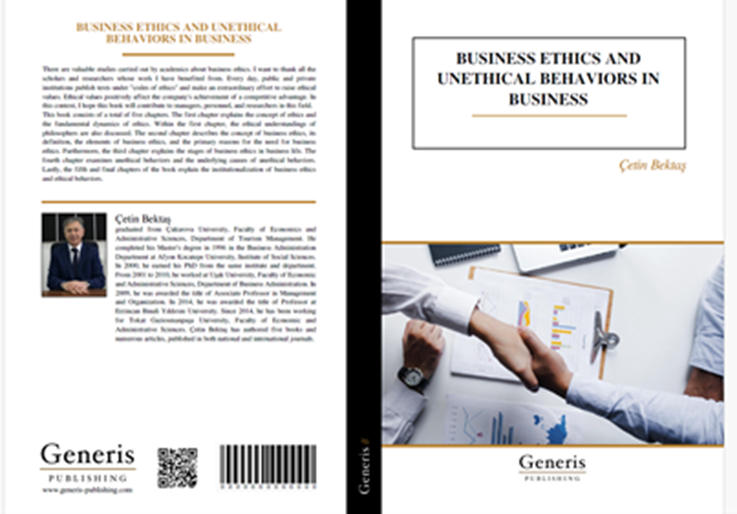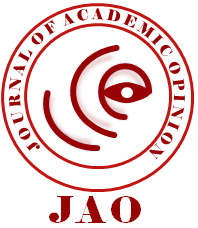The Impact of Growth and Economic Freedoms on Trade Deficit: Panel ARDL Analysis in MIST Countries
DOI:
https://doi.org/10.5281/zenodo.10371745Keywords:
MIST, Dış Ticaret, Ekonomik Özgürlükler, Panel ARDLAbstract
Foreign trade allows companies in different countries to have access to a broader market. Thus, it increases competition by offering consumers more options. Economic freedom, trade freedom, and GDP are important factors in international trade and economic policy practices. In this context, the freedom of foreign trade can contribute to promoting economic and trade freedoms. However, it is important to evaluate not only a general assessment but also a country-specific evaluation in terms of short-term adverse effects. This study aims to examine the impact of the Economic Freedom Index, Trade Freedom Index, and GDP on the trade deficit in MIST (Mexico, Indonesia, South Korea, and Turkey) countries. For this purpose, the Panel ARDL analysis method was applied using data from the period 1996-2022. According to the findings, in the long run, the Economic Freedom Index variable has a positive and significant relationship with the trade deficit, while the Trade Freedom Index and GDP variables have a negative and significant relationship. In the short term, significant and positive relationships were observed between the Trade Freedom Index and GDP variables.
References
Adda, J. (2008). Ekonominin Küreselleşmesi. (Çev. Sevgi İneci) İstanbul: İletişim Yayınları, 5. Baskı.
Akar, G. ve Özcan, M. (2020). MIST Ülkelerinde İthalat, İhracat ve Ekonomik Büyüme: Toda-Yamamoto Nedensellik Analizi. Manas Sosyal Araştırmalar Dergisi. 9(1), 47-59.
Baltagi, B. H. (2008). Econometric Analysis of Panel Data (Fourth Edition). West Sussex: John Wiley & Sons.
Breusch, T.S., Pagan, A.R. (1980). The Lagrange Multiplier Test and its Application to Model Specifications in Econometrics. Review of Economic Studies. 47, 239-53.
Boz, F. Ç., Gültekin, Ö. F. ve Bayramoğlu, T. (2019). BRICS ve MIST Ülkelerinde Ar-Ge Harcamaları ile Yüksek Teknolojili Ürün İhracatı Arasındaki İlişki Üzerine Bir Araştırma. İnsan ve Toplum Bilimleri Araştırmaları Dergisi. 8(2), 1111-1124.
Carlsson, F., Lundström, S. (2002). Economic Freedom and Growth: Decomposing The Effect. Public Choice. 112, 335‐344.
Çadırcı, B. D., Güner, B. (2020). Türkiye’de İller Bazında Sektörel Elektrik Tüketimi ve Ekonomik Büyüme İlişkisi: Panel ARDL Sınır Testi Yaklaşımı. Mehmet Akif Ersoy Üniversitesi Sosyal Bilimler Enstitüsü Dergisi. Sayı. 31. Ss. 41-60.
Damodar N. Gujarati. (2004). Basic Econometrics. Fourth Edition, New York: The McGraw-Hill.
Diler, H. (2020). Türkiye'de Ekonomik Özgürlük Endeksi ve Enflasyonun Kurumlar Vergisi Geliri Üzerindeki Etkisi. Econder International Academic Journal. 4 (2) Retrieved from https://dergipark.org.tr/tr/pub/econder/issue/57015/814943
Doucoulıagos, C. (2005). Publication Bias in the Economic Freedom and Economic Growth Literature. Journal of Economic Surveys. 19(3), 367-387.
Güran, T. ( 1991). İktisat Tarihi. Acar Matbaacılık Yayıncılık, İstanbul
Hirst, P. Thopmson, G. (2007). Küreselleşme Sorgulanıyor. Çev. Çağla Erdem, Elif Yücel, (Ankara: Dost Yayınları, 4. Basım, 2007).
Höbel, Z. (2020). Ekonomik Özgürlükler ve Sosyoekonomik Refah Arasındaki İlişki: Seçilmiş Ülkeler ve Türkiye Örneği. Pamukkale Üniversitesi, Sosyal Bilimler Enstitüsü, doktora Tezi.
Im, K. S., Pesaran, M. H. and. Shin, Y. (2003). Testing for Unit Roots in Heterogeneous Panels. Journal Of Econometrics. 115, 53-74.
Kangal, N., Eroğlu, İ. (2023). Yüksek Özgürlükçü Ekonomilerde Ekonomik Büyüme Performansına İlişkin Ampirik Kanıtlar. Ekonomi Bilimleri Dergisi. 15 (1): 1-24, https://doi.org/10.55827/ebd.1126650
Karadaş, H.A. (2021). Seçili N11 Ülkelerinde İşgücü Eğitim Seviyesinin Ekonomiye Etkisi. Makroekonomik Göstergeler Çerçevesinde N-11 Ülkeleri. Orion Kitabevi. Ankara.
Karadaş, H.A. (2020). Effect of Labor Force Education Level on Growth. Contemporary Approaches In The Field Of Economy. Finance And Management. Nobel Bilimsel Eserler. Ankara.
Koçbulut, Ö., Altıntaş, H. (2016). İkiz Açıklar ve Feldsteın-Horıoka Hipotezi: OECD Ülkeler Üzerine Yatay Kesit Bağımlılığı Altında Yapısal Kırılmalı Panel Eşbütünleşme Analizi. Erciyes Üniversitesi İktisadi ve İdari Bilimler Fakültesi Dergisi. Sayı: 48, Temmuz-Aralık, ss. 145-174.
Kubar, Y., Muzoğlu, Ş. (2022). İkiz Açıklar ve Feldstein-Horioka Hipotezi: Yükselen Ekonomiler Üzerine Panel ARDL Analizi. Ekonomi Bilimleri Dergisi. 14 (1): 1-22., https://doi.org/10.55827/ebd.1034214
Levin, A., Lin C.F. ve Chu C.S.J. (2002). Asymptotic and Finitesample Properties. Journal of Econometrics. 108, 1-24.
Maddala, G. S., Wu, S. (1999). A Comparative Study of Unit Root Tests with Panel Data and A New Simple Test. Oxford Bulletin of Economics And Statistics. (61), pp.631-652.
Naanwaab, C. ve Diarrassouba, M. (2013). The ımpact of economic freedom on bilateral trade: a cross-country analysis. Cephas Naanwaab et al | Int.J.Buss.Mgt.Eco.Res., Vol 4(1),2013, s.668-672.
Nkoro, E. ve Uko, A. K. (2016). Autoregressive Distributed Lag (ARDL) Cointegration Technique: Application And İnterpretation. Journal of Statistical and Econometric Methods. 5(4), 63-91.
Okşak, Y., Dağılgan, G. (2020). Gelişmiş ve Gelişmekte Olan Ülkelerde Dış Ticaret, Büyüme ve Ekonomik Özgürlük İlişkisi Üzerine Ampirik Bir Analiz. Balkan ve Yakın Doğu Sosyal Bilimler Dergisi. 06 (03), ss.79-89.
Özdamar, Gökhan (2015). Türkiye Ekonomisinde Döviz Kuru Geçiş Etkisi: ARDL Sınır Yaklaşımı Bulguları. Akdeniz İ.İ.B.F Dergisi. Sayı :32 (66-97), Antalya.
Pesaran, M. H., Shin, Y. (1995). An Autoregressive Distributed Lag Modelling Approach to Cointegration Analysis. Cambridge Working Papers in Economics. 9514, Faculty of Economics. University of Cambridge.
Pesaran, M. H. and Smıth, R. (1998). Structural Analysis of Cointegrating VAR. Journal of Economic Surveys. 12(5), 471-505.
Pesaran, M., Shin, Y., Smith, R. (1999). Pooled Mean Group Estimation of Dynamic Heterogeneous Panel. Journal of the American Statistical Association. 94(446), 621-634.
Pesaran, M.H., Shin, Y. ve Smith, R. J. (2001). Bound Testing Approaches to the Analysis of Long Run Relationships. Journal of Applied Econometrics. special issue, Vol.16, pp.289-326.
Pesaran, M. H. (2004). General Diagnostic Test for Cross Section Dependence in Panels. IZA Discussion Paper Series no.1240, 1-39.
Razmi, M.J. ve Refaei, R. (2013). The Effect Of Trade Openness And Economic Freedom On Economic Growth: The Case Of Middle East And East Asian Countries. International Journal of Economics and Financial. Issues, Vol.3, No.2, 2013, s.376-385.
Saraç, M. (2021). İktisadi Büyüme ve Ekonomik Özgürlükler Arasındaki İlişki: Oecd Ülkeleri İçin Ekonometrik Veri Analizi: 2000-2021. Niğde Ömer Halisdemir Üniversitesi Sosyal Bilimler Enstitüsü, İktisat Anabilim Dali, Yüksek Lisans Tezi.
Seyidoğlu, H. (2009). Uluslararası İktisat: Teori, Politika ve Uygulama. Geliştirilmiş 17. Baskı, Gizem Can Yayınları, İstanbul.
Seyidoğlu, H. (2013). Uluslararası İktisat: Teori, Politika ve Uygulama. Geliştirilmiş 19.Baskı, İstanbul.
Sonora, R.J. (2008). On The Impacts Of Economic Freedom On International Trade Flows: Asymmetries And Freedom Components. FEB-Working Paper Series. Paper No:08-05, s.1-31.
Stigler, G. J. (1965). The Economist and the State. The American Economic Review. LV/ ½, s. 1-18.
Şengönül, A., Tekgün, B. (2021). Phillips Eğrisinin Panel ARDL Analizi: Türkiye’deki Bölgeler Arası Bir Uygulama. International Journal of Economics. Politics, Humanities & Social Sciences. Vol: 4 Issue: 2. Ss. 81-97.
Şit, A. (2022). Ekonomik Özgürlük Endeksi Borsa İlişkisinin Değerlendirilmesi: MIST Ülkeleri Üzerine Bir Araştırma. Finans Ekonomi ve Sosyal Araştırmalar Dergisi. Cilt.7 Sayı.1, ss.94-102.
Tatoğlu, F. Y. (2003). İleri Panel Veri Analizi. 2. İstanbul: Beta Basım Yayım Dağıtım A.Ş.
Tekgün, B., Eroğlu, İ. (2023). How Okun's Law Works in Fragile Five Countries: Panel Data Analysis. Uluslararası Ekonomi ve Yenilik Dergisi. 9 (2) , 273-288 . DOI: 10.20979/ueyd.1338162
Topcuoğlu, A., Oral, İ. O. (2020). MİST Ülkelerinde Dış Ticaret İlişkileri ve İthalata Bağımlılık Analizi. Turkish Studies-Economy. 15(2):941-958. https://dx.doi.org/10.29228/TurkishStudies.39787
Ürüt Saygın S., (2021). Cari Açık ve Doğrudan Yabancı Yatırımlar Arasındaki İlişki: MIST Ülkeleri İçin Ampirik Bir Analiz. BMİJ, 9 (2): 426-438, doi: https://doi.org/10.15295/bmij.v9i2.1753
Yang, Y. (2012). Agglomeration density and tourism development in China: An empirical research based on dynamic panel data model. Tourism Management. 33: 1347-1359.
Yaslıdağ, B.H., Hamdard, A.W. (2023). Dış Ticaret ve Ekonomik Büyüme İlişkisi: Türkiye Örneği (2001-2020). Ulakbilge Sosyal Bilimler Dergisi. 86 (2023 Temmuz): s. 549–568. doi: 10.7816/ulakbilge-11-86-04.
Yerdelen Tatoğlu, F. (2018). Panel Zaman Serileri Analizi (2. b.). İstanbul, Türkiye: Beta Basım Yayım Dağıtım.
Yenipazarlı, A., Erdal, F. (2010). Dış Ticaretin Serbestleşmesi ve Ekonomik Büyüme. Ekonomi Bilimleri Dergisi. Cilt 2, Sayı, ss. 15-24.
Downloads
Published
How to Cite
Issue
Section
License
Copyright (c) 2023 Journal of Academic Opinion

This work is licensed under a Creative Commons Attribution 4.0 International License.





